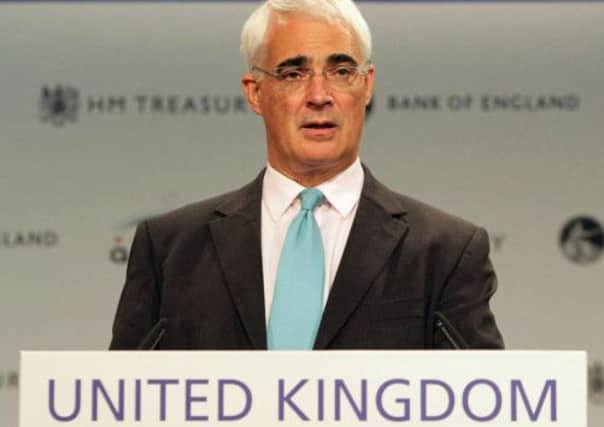Andrew Wilson: Policy row is all ‘should’, no ‘could’


Responding to a TV news show asking for comments on whether Scotland should keep the pound sterling after independence, one of the press officers from the No campaign tweeted: “I believe the correct question is could, not should...?”.
This interested me because that is rarely, if ever, the correct question in life. But it is the preferred question of conservatism and the enemy of progress and reform, especially in this country. It is also the core argument of the No campaign, which continues to miss every opportunity to construct a positive case for standing still in a storm. It was also the clear sneer of Conservative opposition to Home Rule over the decades. And look where that left them.
Advertisement
Hide AdAdvertisement
Hide AdTo elevate “could” above “should” is always to limit oneself fundamentally: “Should I start a business?”, “Should we put a man on the Moon?”, “Should I go for a promotion?”, “Should we try and win this league?”, “Should we show any ambition?”
“Can’t, couldn’t, shan’t” shouts the weakness of self-doubt and the sneer of those that would have us stand-pat in mediocrity, whatever the option. Better to stay in bed with the covers over our head. Always safer. God alone knows what could happen if we face the day. Pathetic.
Those of us with a memory bank deeper than a goldfish’s will recall that a matter of months ago we were told – in the same tone by the same politicians – that the referendum itself could not happen, even if it should. It was illegal, you see, and beyond the competence and power of the mere Scottish Parliament.
So the real question is, should Scotland stick with the pound after a Yes vote? We know plenty of people want a No vote, but try to be adult and answer the question directly. Alistair Darling was big enough to do so. We know he doesn’t want independence, but he argued in January that it would be “desirable” and “logical” to keep the pound if we got it.
Others will be pro-independence and disagree. Again, perfectly respectable in economic terms. But I side with the Nobel prize winners from Oxford and New York who wrote the government’s Fiscal Commission report that argued to keep the pound was the best option, especially as we made the transition to independence.
So having claimed they want answers to hard questions and having got the hard answer with clarity over 222 pages, all the London government is left with is the oldest tactic of conservatism: “Can’t.” George Osborne’s argument – in essence – is that if the Scottish people democratically determined on independence and sought shared monetary institutions and policy approach, then London would seek to stop it. Same tactic, remember, as saying the referendum itself was illegal. Worse actually.
However, the oddest thing for me was watching Labour and Liberal politicians and commentators line up behind Osborne with glee. So important is it to hit the SNP and “win ugly” that they appear ready to embrace a position that seems to suggest that London would seek to harm the Scottish interest, even to the point where doing so wasn’t in theirs.
I don’t believe that will be the outcome. Nor, it seems, do the bulk of London economic commentators who reported the spat with a raised eyebrow concluding it was George Osborne putting politics before policy, as usual. A fatal flaw for any Chancellor.
Advertisement
Hide AdAdvertisement
Hide AdWhile Alistair Darling had earlier in the year concluded the Scottish Government position was “desirable” and “logical” he also pointed out it comes at the cost of fiscal constraints. But so too did the Scottish Government’s Fiscal Commission in the first place. Such financial self-restraint would be just what any newly independent state would need to demonstrate to the markets and to itself to be able to sustainably fund public services anyway.
There is no “beggar the future” route to national success, as the track record of UK Treasury policy failure demonstrates. But within self-imposed financial sense there is a world of opportunity to tailor policy to suit your own circumstance and your competitive economic position. It is, in fact, the best of both worlds.
No choice in this world is easy. But doing nothing is a fool’s comfort. For Alistair Darling that “is not independence”. So what? For me it is the reality of a transition to modern independence in an interdependent world from a pragmatic judgment of the position we start from. Why shouldn’t the new relationship with the UK be the best of all worlds tailored to what balance suits us all best?
We have been through rather a lot together over three centuries and more. We have won and lost through much tougher challenges than this monetary policy one. This is about “should”, not “could” because whatever we democratically determine, “we can”. And incidentally, Messrs Darling and Osborne know that.
Twitter: @AndrewWilsonAJW